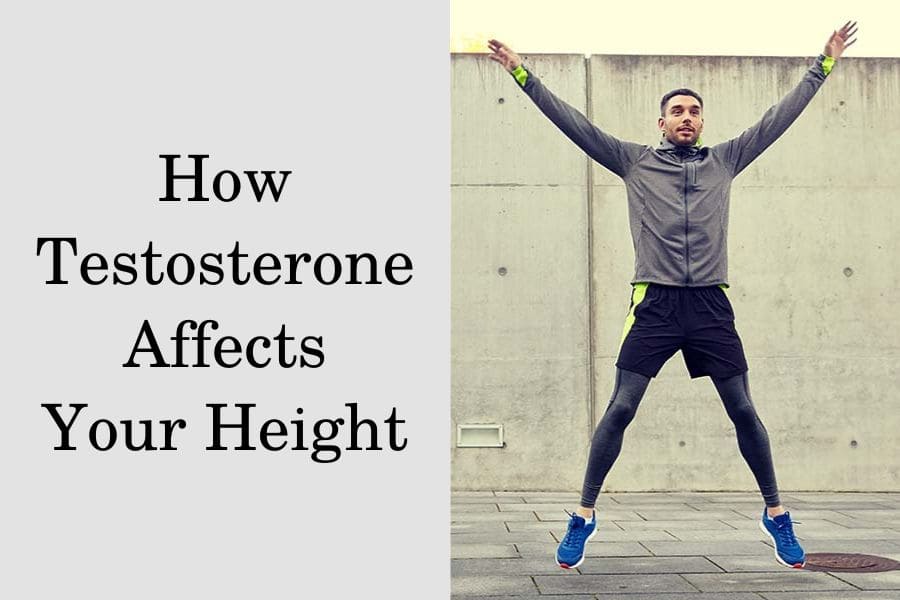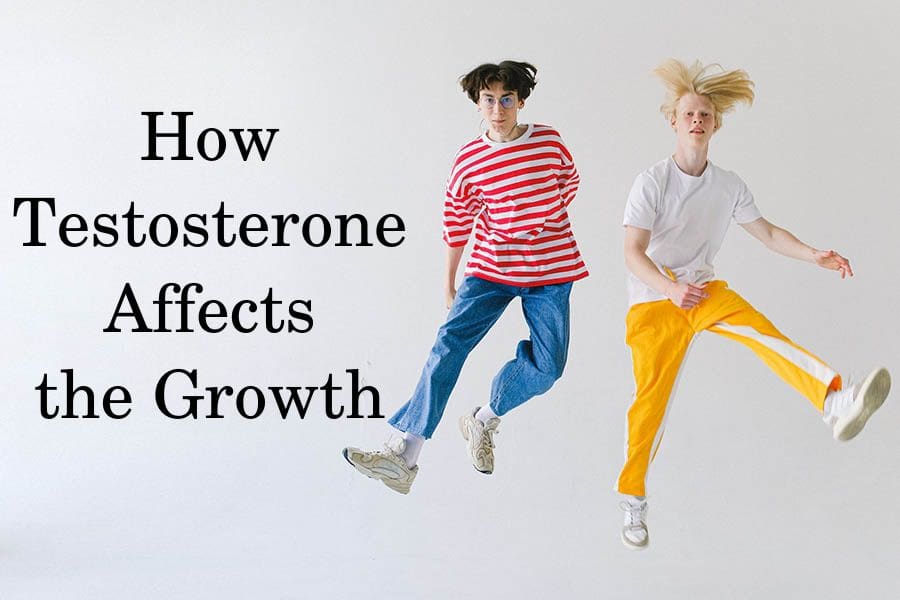Your final height depends on several things, including genetics, hormones, nutrition, and various environmental factors.
The hormones which regulate growth in children are the human growth hormone (HGH), thyroid hormones, and testosterone (T) in males.
As a male, having adequate T levels during puberty is imperative for achieving your genetic potential in terms of height.
Adolescent males with low T often have delayed growth and shorter height, which can be managed via testosterone replacement therapy (TRT).
But once puberty ends and your growth plates close, you have achieved your final height and testosterone cannot make you grow any taller.
Thus, TRT can be legally prescribed for managing the symptoms of low T in adults, but it is not effective nor approved for stimulating height growth in men of mature age.
What’s the relationship between testosterone and body height?
Testosterone is one of the hormones that can stimulate height, particularly in boys. But unlike other hormones such as HGH, its effect on growth occurs mostly during puberty.
In fact, the hormone largely accounts for the growth spurt in male adolescents during this period.
Testosterone increases growth in terms of height by stimulating the growth plates in the bones. Growth plates are structures made of cartilage found in the bones of children and adolescents, and they ensure the growth of the bone in terms of length.
Eventually, the growth plates “close” as they are replaced by bone tissue, and the growth stops. Testosterone does not stimulate the closure of the growth plates.
Instead, estrogen is the main hormone that stimulates growth plate closure in both males and females. In boys, estrogen is produced due to the conversion of testosterone by the aromatase enzyme found in adipose tissue.
Does higher testosterone make you taller?
Having higher testosterone levels during adolescents is associated with an early growth spurt and puberty. But higher testosterone levels may also lead to higher estrogen levels in adolescents. This can lead to the closure of the growth plates and achieving the final height earlier.
On the other hand, boys with low T often have a shorter height, as the growth spurt during puberty may not occur at all without sufficient testosterone levels. Adolescents with low T may also experience delayed puberty and other symptoms of low T.
Testosterone also stimulates bone density and helps adolescents achieve peak bone mass
Can testosterone therapy make you taller as an adult?
Testosterone therapy cannot make you taller if you are an adult because your growth plates have already closed at the end of puberty.
Once you have achieved your final health as an adult, having high testosterone will not make you taller. Therefore, taking testosterone can’t make you taller after you are 25.
Adult patients who take testosterone during gender-reassignment therapy (FTM patients) also do not experience an increase in height.
Can low testosterone cause height loss?
Having low T or suppressing your T production is also not going to have any direct impact on your height as an adult.
However, having low T levels can lead to loss of bone mineral density and even osteoporosis in older adults. The condition can also lead to height loss in affected adults due to osteoporotic fractures, which may occur in the spine.
In such cases, TRT can help stimulate bone mineral density and reverse the progression of osteoporosis in men.
Studies report that TRT can increase spinal bone density by 5% within six months in men with low T. Unfortunately, the process is slow, and it may take at least 2-3 years until you may achieve the maximum benefits of TRT.
TRT can also stimulate bone mineral density indirectly by promoting muscle growth and strength. Research shows that having bigger and stronger muscles is associated with higher bone density.
Get a free consultation with our medical expert for any questions about hormone replacement therapy



